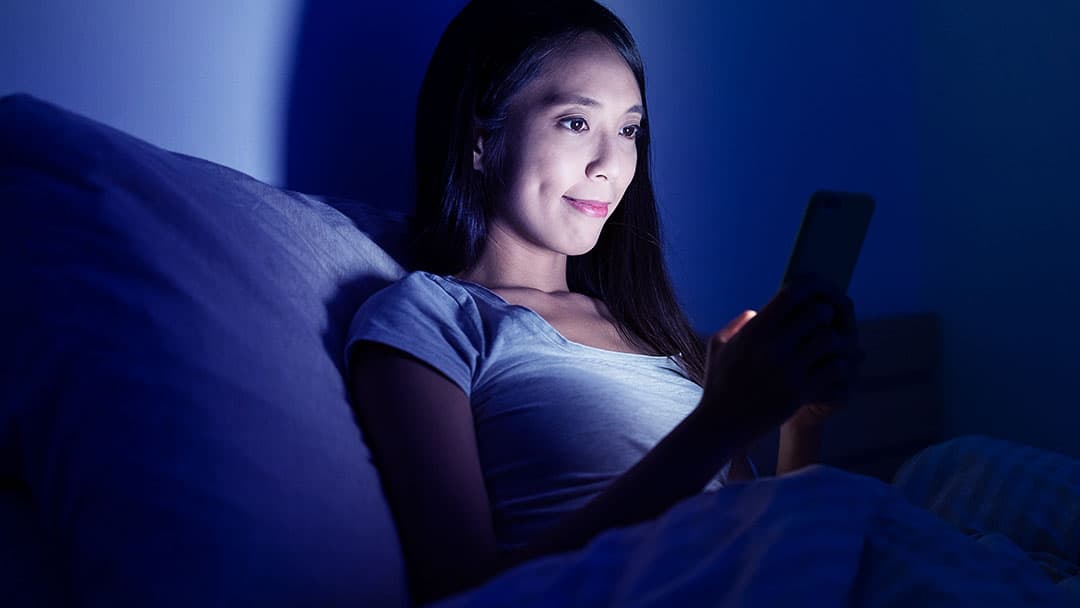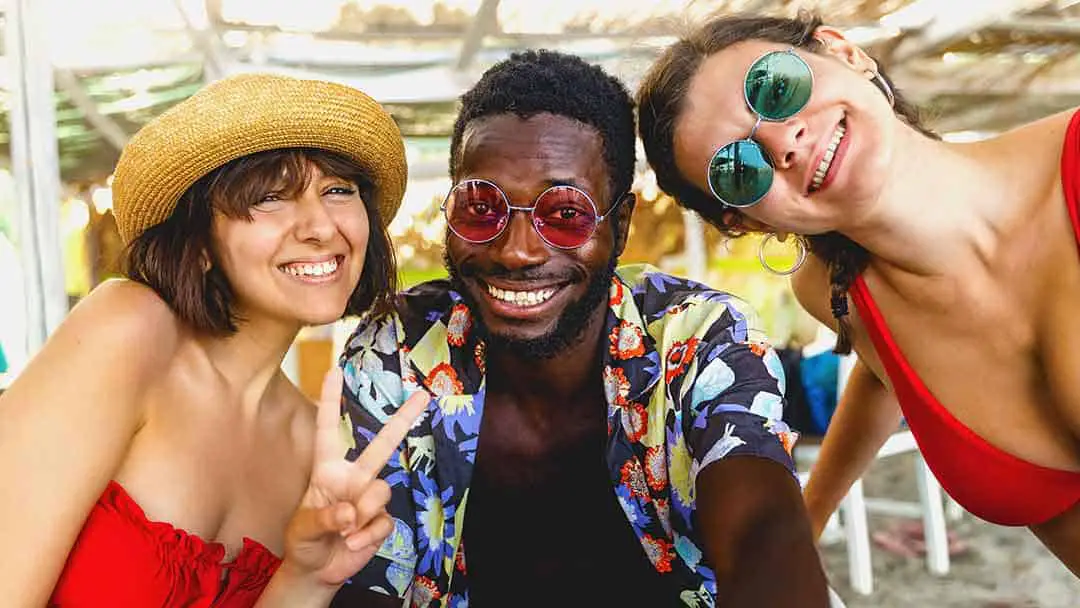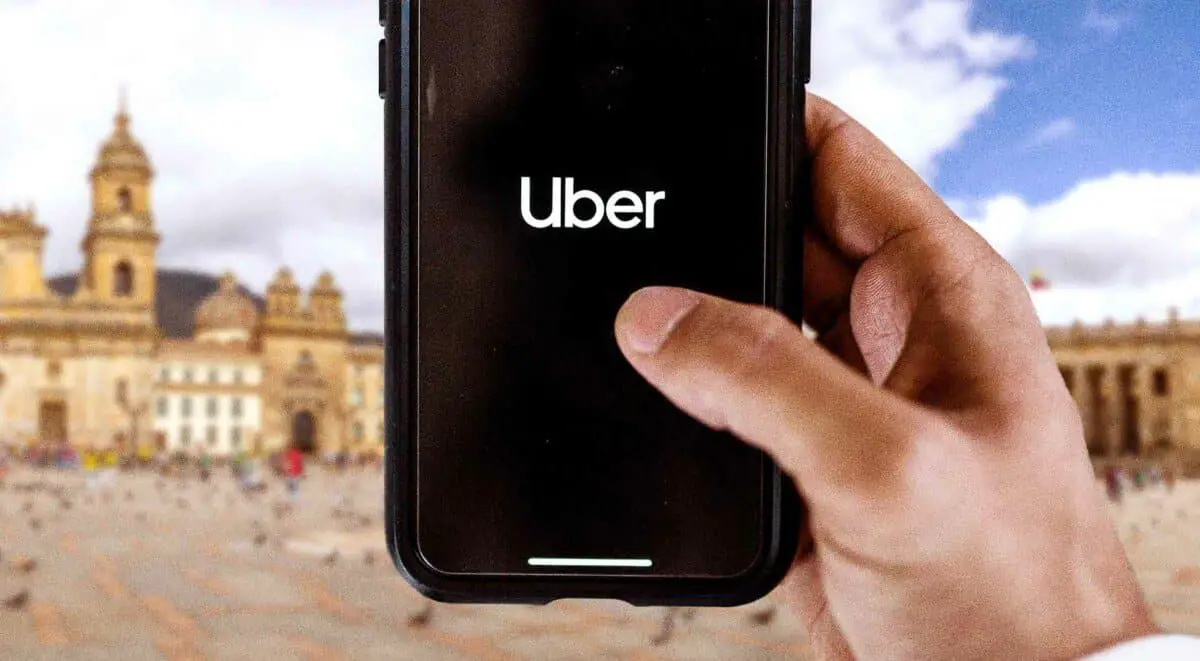Does Blue Light Age & Damage Skin?

As an Amazon Associate we earn from qualifying purchases made on our website. If you make a purchase through links from this website, we may get a small share of the sale from Amazon and other similar affiliate programs. You can read our complete legal information for more details. By using this site, you agree the information contained here is for informational purposes only. For specific medical questions, consult your doctor. NO information on this site should be used to diagnose, treat, prevent or cure any disease or condition.
We know blue light can damage your eyes and mess with your sleep quality, but can it ruin your skin and make you age faster?
I am a big believer in wearing blue light blocking glasses to protect my eyes from the harmful effects of artificial blue light from TV, Computer, and Mobile Phone screens, especially when the sun goes down.
But could that very same light cause damage to your skin, and make you look older than you are? With a little research, it turns out it can have negative consequences for your skin cells! We show you why.
What is natural blue light
It is part of the light you will see emitted from the sun, and it sits between 380 and 500 nanometers on the light spectrum.
In its natural form blue light is a very important external contributor to your sleep cycle aka your circadian rhythm.
Blue light helps you wake up and stay alert during the day. Then as sunlight fades, your sleep hormones like melatonin start kicking in to help you have a restful night’s sleep.

What is artificial blue light
It is within the same spectrum as natural blue light, but the problem is artificial blue light from lighting and screens comes in a concentrated form, without the other range of colors you would get from the sun.
So, it is a lot harsher on the eyes, even if you just used them during the day instead of natural blue light.
Most people don’t limit their screen time to daytime; they spend a lot of their time under artificial lights and looking at screens at night time too.
Therefore, not only are you getting the potential damage to your eyes you are sending signals at night-time to stay awake and to stay alert. This affects your sleep. And sleep deficiency is linked to an increased risk of a whole host of health issues. (1)
I believe to get anywhere near optimal health, then you must have a good sleeping plan. That’s why we wrote this article:
And when it comes to blue-blocking glasses there is one company I trust makes the most powerful blue-blocking lenses and that’s RA Optics.
The other cool thing is that RA Optics gives our readers a 10% discount on their eyewear when this link is used or when you use “Wildllumens” at checkout.

Does light damage skin
Yes, it can.
Sunburn is the prime example. Where exposing yourself to the sun has great health benefits like helping your Vitamin D levels, but too much exposure causes reddening and burning, which have been linked to skin cancer. (2)
It has been shown that it is the UVA and UVB ranges that cause most of the damage the sun can cause.
These sit in the range of 280 and 400 nanometres. You will notice there is an overlap of UVA, UVB, and Blue Light.
So, the blue light that sits in the 380 to 400 range could be problematic. But the blue light that’s close to 500 should be less of a problem. (3)
What issues could light cause on the skin
- Color/Pigment changes.
- Inflammation.
- A weakening of the skin cells and the skin’s surface.
- Oxidization caused by UVA, UVB, and Blue Light increases the number of free radicles in your body.
- Photo-aging. This is where over time, the skin is damaged, but it cannot recover, so you look older than you are. You know the people I am talking about… the ones that look like leather, haha.
Ways in which artificial blue light could be especially harmful to your skin
Concentration
Blue light from screens etc., are in a more condensed form, and there is less dilution from the other lights in the spectrum you would get from the sun.
Distance
You are getting the artificial blue light up close and personal. The light from a phone is generally within arm’s reach, the light from a computer is usually within a couple of meters, the light from a TV is within the size of the room you are in, and the blue light from light bulbs are within the height of the celling you are under.
Duration
Your time under natural blue light is limited to daylight, and that changes on the time of year and where you live.
You could conceivably be subject to artificial blue light 24 hours a day, 365 days a year. So even if it is a smaller dose than the sun, you are probably chronically exposed to artificial blue light for the majority of your life.
One hack I use to mitigate and lessen the blue light exposure from my computer and iPhone is the IRIS app. (Works on Android too.)
This app will remove the blues from your screen and help protect both your eyes and skin.

Ways you can decrease the impact of artificial blue light
- Cut your use of screens and lighting to zero, or
- Only use sources of blue light during the day, or
- Limit your uses of blue light within 2 hours of sleeping, or
- Use things like blue light blocking glasses, screen protectors, and night-time software.
When it comes to computer screens, laptops, and smartphones there are ways to mitigate blue light exposure. Here is how:
General preparedness
To keep things simple, I would recommend limiting your exposure to artificial blue light, but that isn’t going to be all you have to do. It is only one of many areas of health you will need to consider.
The funny thing is they appear to be completely separate, but really, they are all interrelated.
For example, on the surface of things, it appears to be a case of do you think you need to avoid blue light or not.
But as always, the question goes deeper. For example, you could just decide to cut artificial blue light because you are worried about the free radicles caused by blue light.
Yet, you might have paid no attention to the free radicals caused by a high carbohydrate diet. So now you should really consider cutting blue light and going low carb.
Then there are people who follow a Carnivore Diet, who have suggested they can spend longer in the sun without burning, so could the Carnivore Diet lessen the impact of blue light?
I would say probably.
You might say, that sounds fanciful.
But if you think about it, if you believe a Carnivore Diet is nutrient dense then you are building strong robust cells.
Also, we have suggested that blue light causes oxidization, and one of the things carnivore does is limit the consumption of omega 6 and polyunsaturated seed oils.
This is important because omega 6 and PUFAs are easily oxidized, especially by light. So, people on the standard western diet may be more prone to issues with free radicles and blue light. Talk about a bad combo! (4)
So, there is rarely one thing that causes good or bad health; it is usually a combination of habits that have a net result.
Therefore, you need to have a lifestyle that sets you up for good health in general.
Conclusion
I believe limiting artificial is an important tool and is something you should spend a bit of time thinking about.
Because a few simple changes could have a huge impact on your general health and especially skin health.
That said, it is just one section of health you need to consider.
Personally, I believe Diet gives you the biggest bang for your buck. Eating nutrient-dense healthy food and avoiding junk food is going to give you the biggest health wins. After that, you can start looking into other areas like artificial blue light.
Disclaimer: I’m not a doctor. Consult with and ask your doctor about any diet or medical-related questions. No information on this site should be used to diagnose, treat, prevent, or cure any disease or condition. This is not medical advice.



